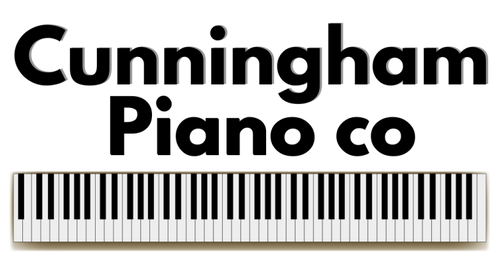Discover why investing in a piano for your child is valuable. Learn how effort, growth, and cognitive benefits can foster lasting passion and academic success.
When it comes to investing in a piano for your child, many parents are understandably cautious. The concern that your child may lose interest after the initial excitement can make such a significant purchase seem risky. However, there's a compelling argument for why the value of effort and growth should be the focus, rather than just initial passion.
Effort Over Passion
You may have heard the advice to "follow your passion." While this can be inspiring, it's not always practical, especially when it comes to children and their ever-changing interests. Business magnate Mark Cuban famously said, "Don't follow your passions; follow your effort." The idea is that success and sustained interest come from consistent effort and dedication. Even if your child doesn't start with a burning passion for the piano, the skills and enjoyment they gain through regular practice can lead to a genuine and lasting interest.
Adopting a Growth Mindset
Research by Dr. Paul A. O'Keefe from Yale-NUS College emphasizes the importance of a growth mindset. This perspective suggests that interests and passions can develop over time with effort and perseverance. Encouraging your child to see their progress, no matter how incremental, can help them stay motivated and engaged.
The Brain Benefits of Learning Piano
Investing in a piano offers more than just the potential for musical talent. Learning to play the piano provides significant brain benefits that transfer to other academic areas. Studies have shown that piano practice enhances cognitive abilities such as memory, spatial-temporal skills, and problem-solving. These cognitive benefits can improve performance in subjects like math and science, making the skills learned at the piano keyboard relevant and valuable in the classroom.
Holistic Development
Beyond academic advantages, playing the piano contributes to holistic development by fostering emotional and creative growth. The discipline and focus required for piano practice help build resilience and emotional intelligence. Additionally, expressing oneself through music can be a powerful outlet for creativity and stress relief, promoting overall well-being.
Supporting Your Child's Musical Journey
Structured Learning Path: A structured learning path with small, achievable milestones can help maintain your child's interest and provide a sense of accomplishment. This approach makes them less likely to abandon their piano lessons.
Positive Reinforcement: Celebrating your child's progress, no matter how small, builds their confidence and motivates them to continue. Positive reinforcement from parents is crucial in sustaining interest and effort.
Flexible Options to Ease Investment Concerns
Affordable Portable Pianos: Cunningham Piano offers affordable portable pianos from Casio and Yamaha. These instruments provide the full 88 weighted key range, ensuring that your child has the best learning tools without the higher cost of a traditional piano. This makes it easier for parents to invest in their child's musical education without financial strain.
Upgrade Programs: Cunningham Piano also offers programs that allow you to trade in a beginner piano for a more advanced model as your child's skills improve. This ensures that your initial investment remains valuable and relevant to their growth.
Setting Realistic Expectations
It's important to set realistic expectations about the learning process. While initial enthusiasm may wane, consistent practice and gradual improvement often reignite interest and passion. Help your child understand that mastering the piano is a journey with its ups and downs.
Creating a Supportive Community
Cunningham Piano fosters a supportive community through various initiatives at Cunningham’s Music School. We offer comprehensive piano lesson programs tailored to different skill levels, ensuring your child receives quality instruction from experienced teachers. Additionally, our student recital options provide opportunities for your child to showcase their progress and gain performance experience in a supportive environment. These events not only build confidence but also create a sense of belonging and motivation. Encouraging your child to participate in these activities can make their learning experience more enjoyable and rewarding.
Conclusion
Investing in a piano for your child is about more than just immediate interest. By focusing on effort, providing structured learning, and offering positive reinforcement, you can help your child develop a lasting passion and valuable skills. The cognitive benefits of piano practice can enhance academic performance, while the emotional and creative aspects contribute to holistic development. Remember, the journey of learning the piano is as important as the destination. With patience and support, your investment in a piano can be a stepping stone to a lifelong appreciation of music.

